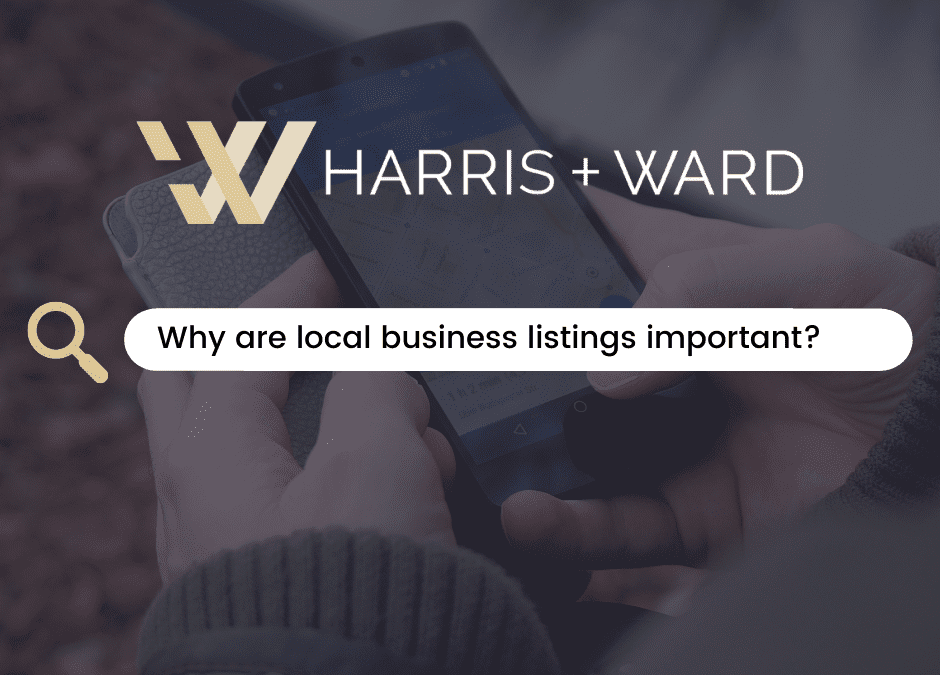
3 Reasons to Care About Local Business Listings
3 Reasons to Care About Local Business Listings
Written by Lesley Goodaker, Digital Marketing Manager
Local SEO efforts directly correlate to your business’ reputation, rankings, and revenue. That’s why its vital to understand the purpose of local business listings and citations.
What is local search?
As the name might suggest, local SEO is intended to attract customers in concentrated areas such as a specific town or city. Greater search visibility for small businesses often means more foot traffic, more service opportunities, and ultimately, more revenue.
To this end, Local SEO is all about increasing search visibility for businesses that rely on face-to-face interactions with their customers. These can be brick-and-mortar businesses with physical office space, like a law or dental office, or businesses like electricians and construction companies that services specific geographic areas.
Much like traditional search optimization, local SEO is designed to improve your visibility on Google and other search engines. This is largely done by creating content using keywords that are relevant to searches your target audience is looking for.
Examples of a local search query include phrases such as “lawyers near me,” “dentist in Lexington,” and even, “best Lexington eye doctor.”
What is the role of business listings in local SEO?
Not that long ago, businesses had a plethora of options for publicizing their business locally through phone book listings, newspaper advertisements, mailers, and even telemarketing.
Unfortunately, as marketing has taken a turn towards digital channels, many of these mediums have become all but obsolete either due to cost alone or a general lack of disinterest on the part of consumers.
In this way, internet marketing has become as much of a necessity for the mom and pop shop down the street as it is for the likes of Starbucks and Aspen Dental.
With over 90% of consumers searching for local businesses online, local citations are quickly replacing traditional offline advertising. As a result, more businesses are turning to local business directories online for an accessible way to publish their business information.
Here are 3 important reasons your business should care about local directory listings.
1. Gain visibility.
Many online directories (including Google My Business) allow businesses to submit their information for publication for free. This is a cost-effective way to boost brand awareness and increase online visibility for brands that can’t or don’t want to turn to paid advertising.
That aside, published online listings offer businesses an automatic boost in search visibility. Though you won’t get to the first position result simply by submitting your business information, you will gain favor over businesses that have not submitted their own information for publication.
Building citations on sites like Google, Facebook, and within relevant online directories such as Angie’s List or Healthgrades ultimately gives your business more online visibility. This in turn helps your business to be found by the right people at the right time.
2. Control your brand.
A pleasant side effect of creating citations for your business is that you get more control over your brand. Submitting and/or claiming your online business listings allows you to determine how your business is displayed in the search results. Instead of merely pulling information about businesses from multiple sources (i.e. Facebook, websites, etc.), search engines will rely on the information presented in your verified listing.
3. Secure consumer trust.
It’s no secret that reviews are a vital part of your business’ reputation. Even so, digital reviews are increasingly referenced by consumers as a make or break factor in their buying decisions. This makes your business’ ability to receive and display reviews crucial to securing consumer trust.
Publishing/claiming your business listings on reputable review sites like Yelp or the Better Business Bureau makes it easy for existing customers to leave feedback and even easier for prospects to find this information. At the end of the day, word-of-mouth reviews will get out there so you may as well make the most of it!
Find a marketing agency to help with your local business listings.
The importance of local listings can’t be overstated.
Think about how often people, yourself included, search for businesses near them? Searching for local businesses online is becoming easier with each passing day, so the importance of having listings online is growing, as well.
If you own a local business, it is imperative that you are not only represented online but that your representation is accurate as well. This is growing even more important during the ongoing health crisis.
If you’re unsure where to begin, consider enlisting the help of a local marketing agency!









